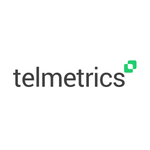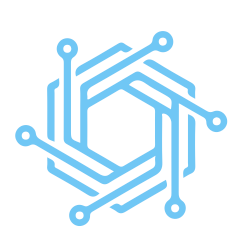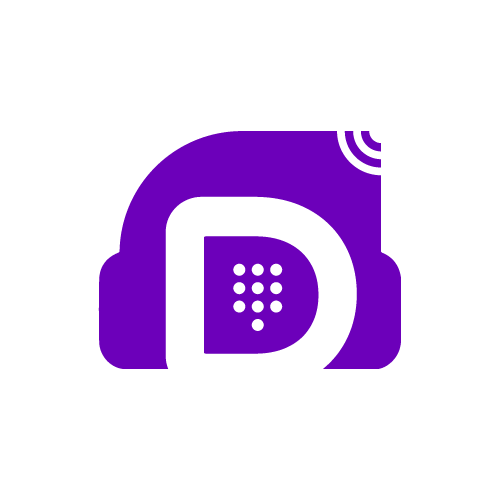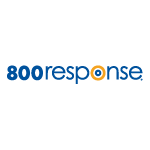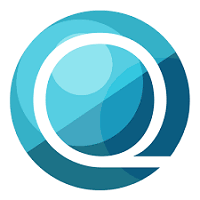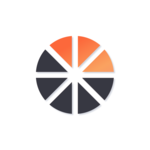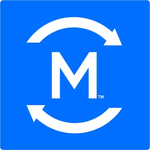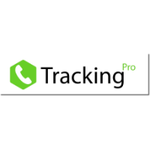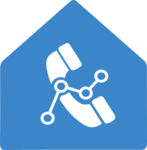"Most call tracking software may be accessed from numerous devices and platforms. This allows businesses to trace calls from desktops, laptops, tablets, and smartphones. The program is typically web-based, so users may access it from any device with an internet connection. This ensures that users have access to call data at all times, regardless of their location or chosen device.
List of 20 Best Call Tracking Software
Convirza is a tool that aims to elevate business effectiveness by analyzing and scoring calls. It provides crucial data, enhances agent productivity, and allows for data-backed choices to boost ROI and client contentment. By utilizing Convirza, organ...Read More Convirza
CallTelligence is a software solution that offers businesses valuable analysis and optimization tools to enhance their call interactions. Seamlessly integrated and equipped with actionable insights, CallTelligence is designed to elevate your communic...Read More CallTelligence
Adversus is a B2B software that streamlines outbound calling processes for call centers. It is tailored for industries like telecom, finance, and insurance, and is trusted by thousands of agents across Europe and the US to optimize their prospecting...Read More Adversus
FreeCallTracking AI is a call tracking solution for monitoring and analyzing inbound calls from your digital and marketing efforts. With advanced features like real-time tracking, recording, and keyword-level tracking, as well as dynamic number inser...Read More FreeCallTracking AI
Jet Interactive - a cloud-based phone system that revolutionizes business communication. Featuring advanced call tracking and tailored customer interactions, our platform boosts engagement and streamlines processes. With fully customizable and scalab...Read More Jet Interactive
DialerHQ solution for streamlined communication. With DialerHQ, you can make calls and send messages using a separate number while keeping your personal one private. Enjoy the highest level of privacy and security, as all conversations are completely...Read More DialerHQ
800response is an innovative call tracking and analytics software that transforms lead generation and marketing attribution for all types of businesses. By offering easy-to-remember vanity numbers, advanced call analytics, and deep customer insights,...Read More 800response
CallTrackingMetrics is a tool for driving customer insights and increasing revenue. By harnessing the power of advanced AI analytics and seamless integrations, it allows your team to make data-driven decisions and streamline sales effortlessly. Say g...Read More CallTrackingMetrics
Invoca is a real-time revenue execution platform that has been featured in The Forrester Waveâ„¢ Q2 2024 report. With its robust capabilities, businesses can leverage valuable data from initial customer interactions all the way to closing deals,...Read More Invoca
Ruler Analytics is a marketing tool that connects your campaigns directly to revenue. Its advanced tracking system accurately captures all interactions, from calls to live chats, providing valuable insights on your top-performing channels for generat...Read More Ruler Analytics
Callcap is a call tracking software perfect for both startups and enterprises. Its intuitive interface and comprehensive features, such as Instant Retrieval, Call Routing, Call Sharing, Distributed Call Recording, and IVR/Voice Recognition, make it t...Read More Callcap
Quvu - call center platform aimed at elevating customer engagements and streamlining business operations. With its advanced capabilities such as real-time analytics, smart routing, and seamless integration, Quvu empowers businesses to improve product...Read More Quvu
Masergy offers exceptional software-defined networking and security solutions. Their specialized services include cutting-edge SD-WAN, SASE, and unified communications. With a strong global presence, Masergy delivers tailor-made, secure, and automate...Read More Masergy
PhoneWagon is a highly dependable and reputable software crafted for diverse uses. Its cutting-edge call tracking and analytics capabilities enable businesses to confidently make informed decisions for enhancing their marketing tactics. Rely on Phone...Read More PhoneWagon
Marchex is a conversation intelligence platform that helps businesses improve their sales and marketing tactics. By providing valuable insights and thorough analysis of customer conversations, Marchex enables teams to prioritize leads and improve eng...Read More Marchex
Ringba is a inbound call tracking and analytics solution designed for marketers and businesses. With its cutting-edge features including real-time call management, intelligent call routing, and comprehensive analytics, Ringba empowers companies to am...Read More Ringba
Call Tracking Pro is a call tracking solution for businesses of all sizes. This powerful software is perfect for Windows users and comes equipped with a wide range of features such as Call Recording, IVR/Voice Recognition, Caller Identification, Conv...Read More Call Tracking Pro
CallRoot is a call tracking solution for marketers. Its user-friendly interface and advanced features like dynamic number insertion, call recording, and keyword-level tracking make it the perfect tool to streamline your marketing efforts. Effortlessl...Read More CallRoot
REIRail Call Tracking for Real Estate is solution for real estate agents looking to boost their lead management game. This advanced software offers a range of features, including call tracking, conversation analysis, and actionable data, to enhance c...Read More REIRail Call Tracking for Real Estate
CallFire is a highly acclaimed call and text platform that enhances customer outreach and increases sales for businesses of all industries. With a reputation for effectiveness and dependability, this award-winning software is the go-to choice for red...Read More CallFire
Learn More About Call Tracking Software
- What Is Call Tracking Software?
- What Are The Recent Trends In Call Tracking Software?
- Benefits Of Using Call Tracking Software
- Important Factors To Consider While Purchasing Call Tracking Software?
- What Are The Key Features To Look For In Call Tracking Software?
- Why Do Businesses Need Call Tracking Software?
- How Much Time Is Required To Implement Call Tracking Software?
- What Is The Level Of Customization Available In Call Tracking Software?
- Which Industries Can Benefit The Most From Call Tracking Software?
- Conclusion
What Is Call Tracking Software?
Call monitoring software is a powerful tool that allows organizations to track and analyze phone calls to get important insights into customer behavior, enhance marketing campaigns, and improve overall business performance. It enables businesses to effectively track and measure the success of their advertising efforts by allocating unique phone numbers to each campaign and tracking calls received through those numbers.
One of the most important aspects of call monitoring software is the ability to identify the source of each inbound call. This allows firms to better invest their resources by determining which marketing channels generate the most phone calls. Furthermore, call monitoring software provides extensive information about each call, such as the caller's location, call duration, and call recordings, which helps organizations better understand their target audience and their demands.
Businesses can use call tracking software to discover patterns and trends in consumer questions, allowing them to make data-driven decisions. It also has the advantage of interacting with other marketing tools and CRM systems, giving for a more complete picture of consumer interactions. Furthermore, call monitoring software provides performance metrics and analytics to measure the effectiveness of call handling by customer service professionals, enabling businesses to improve customer service and satisfaction.It also delivers real-time monitoring and insights, allowing firms to quickly alter and optimize their initiatives.
What Are The Recent Trends In Call Tracking Software?
In recent years, call tracking software has grown quickly to accommodate the ever-changing needs of enterprises. Here are the major trends that have evolved in the area of call tracking software:
1. Integration With Other Marketing Tools: Call monitoring software now works seamlessly with CRM systems, email marketing platforms, and analytics tools. This enables organizations to track and analyze their consumers' journey across all touchpoints, resulting in a more comprehensive view of their marketing efforts.
2. Artificial Intelligence And Machine Learning: Advanced call tracking software now uses artificial intelligence and machine learning technology to deliver more accurate and informative statistics. This enables organizations to better understand their consumers' behavior and preferences, allowing them to optimize campaigns and increase overall performance.
3. Real-Time Call Tracking: With the increase in mobile usage, real-time call monitoring has become an essential function in call tracking software. This enables firms to track calls as they occur, delivering more accurate information about which marketing channels generate the most calls.
4. Multi-Channel Tracking: Call tracking software now tracks more than simply phone calls. It also tracks additional channels such as social media, emails, and web forms to provide a complete picture of the client journey.
5. Call Recording And Sentiment Analysis: Call tracking software now includes call recording and sentiment analysis features. This enables firms to monitor and analyze call quality, thereby improving their customer service and sales processes.
6. Customized Reporting And Analytics: In addition to conventional call tracking measures, software now allows for customized reporting and analytics choices. This enables firms to monitor and evaluate certain data points related to their industry and company objectives.
7. Cloud-Based Solutions: The adoption of cloud-based call tracking software has grown rapidly in recent years. This enables organizations to access their data from anywhere, at any time, without the need for costly hardware installations. With these recent changes, call tracking software has emerged as a crucial tool for organizations seeking to better their marketing tactics, customer service, and overall performance. As a buyer, you must consider these patterns while comparing different call tracking software choices for your company.
Benefits Of Using Call Tracking Software
Call monitoring software is an excellent tool for firms trying to better their marketing and sales strategy by gathering vital information from phone calls. This program enables businesses to track, record, and analyze their inbound and outbound phone calls, giving critical data for improving customer interactions.
The following are some significant advantages of employing call tracking software that every buyer should consider.
1) Improve Customer Service: Call tracking software enables organizations to analyze the quality of customer interactions and discover areas for improvement. This enables them to train their personnel more effectively, give quick help, and eventually improve the overall client experience.
2) Accurate Attribution: Call monitoring software offers accurate lead attribution, allowing firms to discover the most efficient marketing channels and manage their budget accordingly. It also aids in evaluating which campaigns or keywords are generating the most phone calls, allowing firms to tailor their marketing strategies.
3) Data-Driven Decisions: Call tracking software collects data that helps firms understand customer behavior, preferences, and pain points. This enables them to make data-driven decisions, launch focused marketing efforts, and better tailor their products and services to their clients' demands.
4) ROI Tracking: By tracking and recording phone calls, firms may correctly calculate the return on investment for marketing programs. This enables businesses to determine which programs are generating the most income and which need to be altered or removed, so increasing their ROI.
5) Improved Call Management: Call tracking software helps organizations manage their calls more effectively. It includes features like call routing, scheduling, and call queuing, which ensure that every call is answered quickly and routed to the proper department or individual.
6) Detailed Analytics: Call tracking software offers detailed analytics and reporting, enabling businesses to monitor data such as call duration, volume, and outcomes. These insights assist businesses in identifying patterns, trends, and areas for improvement, allowing them to continuously improve their marketing and sales tactics.
Important Factors To Consider While Purchasing Call Tracking Software?
When investing in call tracking software, it is vital to consider a number of factors to maximize the potential return on investment. The right call monitoring software may assist a business with anything from call tracking and analysis to marketing and conversion optimization. To help you make an informed decision, below are the major factors to consider when choosing call tracking software.
1. Call Tracking Features: When selecting call tracking software, it is vital to analyze the features and functionality it offers. This includes call recording, forwarding, analytics, caller identification, and software integration. Each feature has a specific purpose, and it is vital to determine which ones are necessary for your business objectives.
2. Usability: Both administrators and agents should find the call tracking software's interface simple to use. This ensures that the staff have a smooth transition and training. You can also request a demo or trial to evaluate the software's usability and whether it meets your requirements.
3. Integration Capabilities: The call tracking software should work seamlessly with your current systems and tools. This includes CRM, marketing automation, and analytics software. This integration can help to speed up procedures and provide a comprehensive view of client interactions.
4. Customization Options: Because each organization has unique requirements, call monitoring software should offer customization options to fit those needs. This may include personalized call scripts, reports, and branding options. Before making a purchase, ensure if the software supports these customizations.
5. Pricing Plans: The cost of call tracking software varies, therefore it's critical to grasp the pricing plans offered by various suppliers. Some may charge per call, while others may offer a flat monthly fee. Consider your budget and determine which price plan is best for your organization.
6. Customer Support: As with any product, technical issues might arise, therefore it is vital to choose a provider with solid customer service. This may include 24-hour availability, several forms of communication, and quick response times. Look for reviews and testimonials to learn more about the provider's customer service.
7. Scalability: As business requirements evolve, call tracking software should be able to scale up or down in response to demand. This helps to limit unnecessary spending while also guaranteeing that you get the tools and capabilities you require when you need them. By considering these factors, you will be able to make an informed decision on the best call tracking software for your business. It is also critical that you explore and evaluate multiple vendors to choose the best one for your specific requirements. Remember that the right call tracking software may assist improve the customer experience, optimize marketing activities, and promote corporate growth.
What Are The Key Features To Look For In Call Tracking Software?
When it comes to choosing the best call monitoring software for your business, there are several crucial things to consider to ensure that you get the most out of your investment. These capabilities not only track and record your calls, but they also provide useful insights and analytics to help you enhance your overall business performance. Here are the major characteristics you should look for in call tracking software.
1. Call Tracking And Recording: The fundamental function of any call tracking software is the ability to track and record phone calls. This allows you to correctly assess the efficiency of your marketing initiatives, as well as the performance of your sales and customer service teams.
2. Dynamic Number Insertion: With this capability, you can show a unique phone number for each marketing source, such as a website, commercial, or email. This allows you to track which marketing channels are generating the most calls and leads.
3. Call Analytics: A good call tracking software should provide detailed call analytics, including call duration, call source, geographic location, and other information. This information can help you detect patterns and trends, as well as opportunities for improvement in customer service.
4. Call Routing And Voicemail: Some call monitoring software includes advanced call routing settings, allowing you to tailor how calls are sent to your team. This can increase the efficiency of your call handling procedure while also providing a better client experience. Furthermore, voicemail functionality can help ensure that no crucial calls are missed.
5. Integration With Other Products: Look for call monitoring software that works seamlessly with other tools and platforms, such as customer relationship management (CRM) systems and marketing automation software. This can improve your workflow by making it easier to track and manage all of your customer contacts.
6. Real-Time Reporting: Businesses that must monitor and respond to incoming calls on a continuous basis require real-time information. Make sure your call tracking software provides easy access to call data and metrics so you can make quick decisions.
7. Multi-Channel Support: In today's digital environment, customers can reach out via a variety of channels, including phone, email, chat, and social media. Choose call tracking software that supports several channels to avoid missing any essential client questions.
8. Customizable Features: Each business has unique requirements and workflows. Look for call tracking software that is easily customizable to match your individual needs.
Why Do Businesses Need Call Tracking Software?
In today's digital world, businesses are always looking for new ways to track and optimize their marketing efforts. One critical component of this is learning how their customers interact with them over the phone. Here is where call tracking software comes in handy. Call monitoring software is a sophisticated tool that enables organizations to monitor and analyze phone calls from customers. It works by allocating a distinct phone number to each marketing campaign or source, such as a website or a social media advertisement. This enables organizations to identify which campaigns generate the most phone calls, allowing them to make data-driven decisions to improve their marketing approach.
But why do businesses require call tracking software? Here are the main reasons:
1. Understand Customer Behavior: By examining conversation recordings and transcripts, organizations can acquire useful insights into their customers' behaviors, preferences, and problem concerns. This data can help them enhance their products or services, target their advertising more effectively, and ultimately increase consumer happiness.
2. Track ROI: As previously said, call tracking software enables firms to connect phone calls to specific marketing campaigns or sources. This makes it easier to track the ROI of various marketing efforts and decide where to invest money for the best return.
3. Make Data-Driven Decisions: Call tracking software offers detailed call analytics, such as call duration, caller location, and call results. This data can assist firms in making data-driven decisions based on real-time knowledge, rather than guessing.
4. Improve Customer Service: Analyzing call recordings allows organizations to find areas for improvement in customer service and train their employees accordingly. This can result in a better client experience and retention.
5. Measure Advertising Success: In addition to analyzing ROI, call tracking software may assist organizations in determining the success of their advertising efforts by monitoring call volume, answering time, and call duration. This allows firms to discover which campaigns are producing the most leads and tailor their marketing efforts accordingly.
6. Gain A Competitive Advantage: By using call tracking software, organizations may better understand their clients and optimize their marketing campaigns. This can help them keep ahead of the competition and increase conversions.
How Much Time Is Required To Implement Call Tracking Software?
The time required to establish call tracking software varies based on the product and your business's demands. However, it typically takes two to four weeks for the software to be properly installed and linked with your existing systems. The first step in adopting call tracking software is to select a vendor whose capabilities and pricing are compatible with your business objectives.
This may take a few days while you investigate and evaluate various possibilities. Once you've decided on a supplier, the following step is to set up your account and configure the program for your business. This includes configuring tracking numbers, call routing, and integrating the software with your website and other platforms. Depending on the complexity of your organization and the level of customization necessary, this process might take anywhere from a few days to several weeks.
Following the initial setup, the program will need to go through a testing process to confirm that all features are operational and to make any necessary changes. This may take a week or two, depending on the amount of calls and the number of agents using the system. Overall, the time necessary to establish call tracking software is little when compared to the long-term benefits it may provide to your firm.
With good preparation and attention to detail, you can have the program up and running in a matter of weeks and begin to realize the benefits in lead generation and consumer insights.
What Is The Level Of Customization Available In Call Tracking Software?
Call tracking software provides a wide range of customization possibilities to meet the individual demands and goals of enterprises. This level of customisation enables firms to fully utilize the features of call tracking software and optimize their call tracking strategies. The first degree of customization offered by call monitoring software is the ability to select which metrics to track.
Businesses can monitor and analyze call performance using a variety of indicators such as call duration, call source, and call outcome. Another key component of customization in call monitoring software is the ability to create unique tracking numbers for different marketing campaigns or channels. This enables firms to accurately track the performance of each campaign and make informed decisions about how to allocate their marketing budget.
Furthermore, organizations can personalize their call tracking software by configuring unique greetings and call routing depending on predefined parameters. This not only improves the client experience, but also enables organizations to route calls to the proper team member or department. In addition to these features, call monitoring software provides comprehensive customization possibilities such as CRM and tool connection, bespoke report creation, and automatic process setup.
It is important to note that the level of customisation provided varies depending on the call tracking software supplier. As a result, before making a decision, organizations must assess their individual requirements and thoroughly evaluate the customization options provided by each software. Overall, the high amount of customization offered in call tracking software allows organizations to tailor their call tracking strategy to their specific needs, assuring optimum efficiency and effectiveness in monitoring and optimizing call performance.
Which Industries Can Benefit The Most From Call Tracking Software?
Call Tracking Software is a beneficial tool for firms of all sizes and industries, but some industries will profit more from its use. The following industries can gain the most from deploying call tracking software:
1. E-commerce: As online shopping continues to dominate the retail market, e-commerce companies rely significantly on phone calls to convert leads to customers. Call tracking software allows e-commerce enterprises to track which marketing campaigns and keywords are driving phone calls, optimize ad spend, and enhance overall conversion rates.
2. Healthcare: In the healthcare profession, patients frequently have questions or concerns that they prefer to address over the phone. Call tracking software can assist healthcare facilities in monitoring and analyzing the effectiveness of their call center, ensuring timely patient response, and improving the patient experience.
3. Real Estate: Real estate agents, brokers, and property management organizations receive a high volume of phone calls from prospective clients. Call tracking software can assist businesses in determining which marketing initiatives generate the most leads, tracking call patterns to optimize staffing, and improving customer service through call recording for quality assurance.
4. Insurance: Insurance firms rely substantially on phone calls for new client inquiries, policy renewals, and claims processing. Insurance firms can use call monitoring software to track the ROI of their marketing activities, improve customer service by routing calls to the proper agent, and monitor call length and data to discover areas for improvement.
5. Legal: Law firms and attorneys receive a large amount of phone calls from new and current clients. Call tracking software can help businesses understand which marketing methods are most effective in generating leads, measure billable hours for each client, and guarantee that calls are handled promptly and efficiently.
Conclusion
After doing extensive research and analysis, it is clear that call tracking software is a significant resource for businesses of all sizes. Businesses that can track and analyze phone conversations can gain valuable information into their marketing strategies, customer behavior, and overall call performance. Whether you're a small business wanting to increase lead generation or a large corporation looking to improve call center operations, call tracking software is critical in today's digital landscape.
Call tracking software not only delivers essential data, but it also offers a wide range of services and capabilities that can benefit any business. Call monitoring software is a full solution for managing and optimizing your phone calls, including call recording and transcription, real-time analytics, and integration with other marketing tools. It's critical to recognize that not all call tracking software is made equal.
When making a purchase, be sure to research the features, pricing, and customer service offered by different providers. Furthermore, consider your specific business requirements and choose software that best fits your goals and objectives. Overall, investing in call tracking software can boost your company's success. It can help you make data-driven decisions, improve customer satisfaction, and enhance overall revenue. By investing time in researching and selecting the best call monitoring software for your business, you will position yourself for long-term growth and success.
Call Tracking Software FAQ's
Can Call Tracking Software Be Accessed Across Multiple Devices And Platforms?
Is Call Tracking Software Future-Proof And Adaptable To Emerging Technologies Like Ai, Blockchain or Iot?
Yes, call tracking software is intended to be future-proof and adaptable to new technologies. As AI, blockchain, and IoT continue to advance and integrate into business operations, call tracking software will adapt to include new technologies. This enables more advanced and efficient call tracking, analysis, and management. Call monitoring software's versatility and adaptability allow it to seamlessly interact with developing technologies, providing businesses with the most current and effective option for controlling phone conversations.
Is There A Free Trial Offered To Assess Call Tracking Software Before Committing?
Yes, many call tracking software vendors provide a free trial period so that users can evaluate the product before committing to a purchase. This enables potential clients to study the software's features and benefits, evaluate its suitability with their business requirements, and make an informed decision. Free trials normally last 7 to 14 days and may require consumers to supply contact information or register for a free account.
Does Call Tracking Software Offer Data Security Features And Meet Regulatory Compliance Standards?
Yes, many call tracking software vendors provide a free trial period so that users can evaluate the product before committing to a purchase. This enables potential clients to study the software's features and benefits, evaluate its suitability with their business requirements, and make an informed decision. Free trials normally last 7 to 14 days and may require consumers to supply contact information or register for a free account.
Can Call Tracking Software Integrate Seamlessly With Existing Tools And Platforms?
Yes, call tracking software can work easily with your existing tools and platforms. API connectors and custom integrations enable you to connect your call tracking software to CRM systems, marketing automation platforms, and other business applications. This allows you to track vital data and insights across different channels, which boosts your overall business success.


